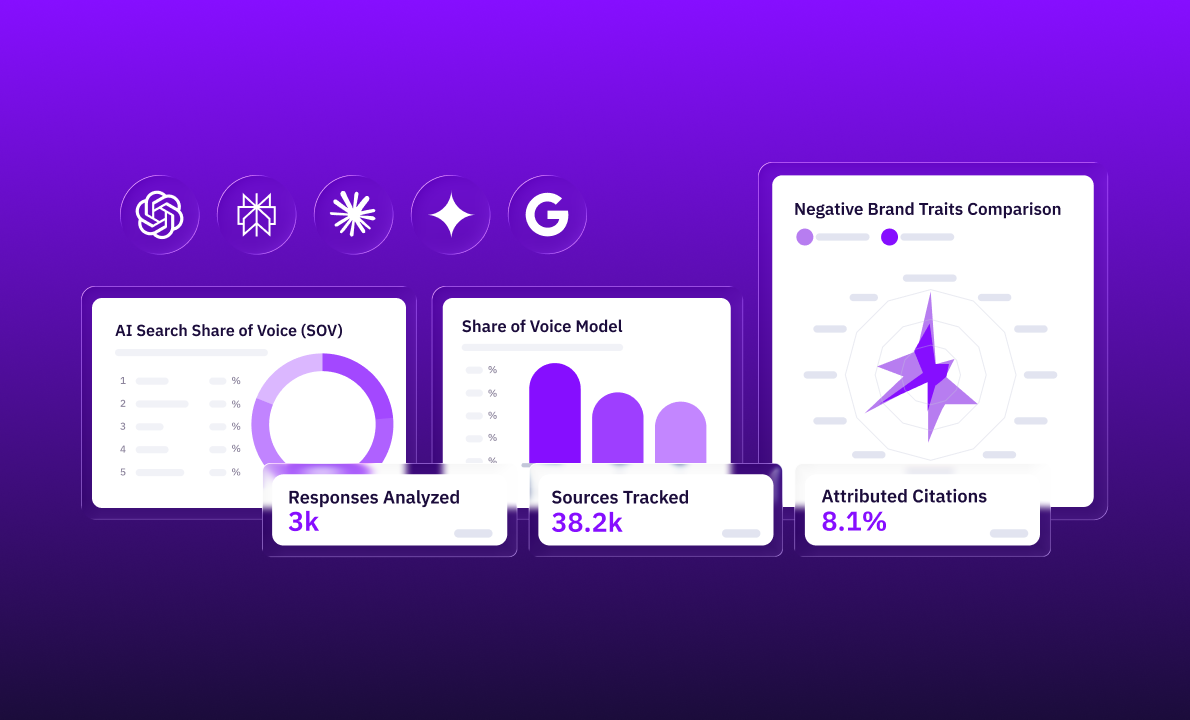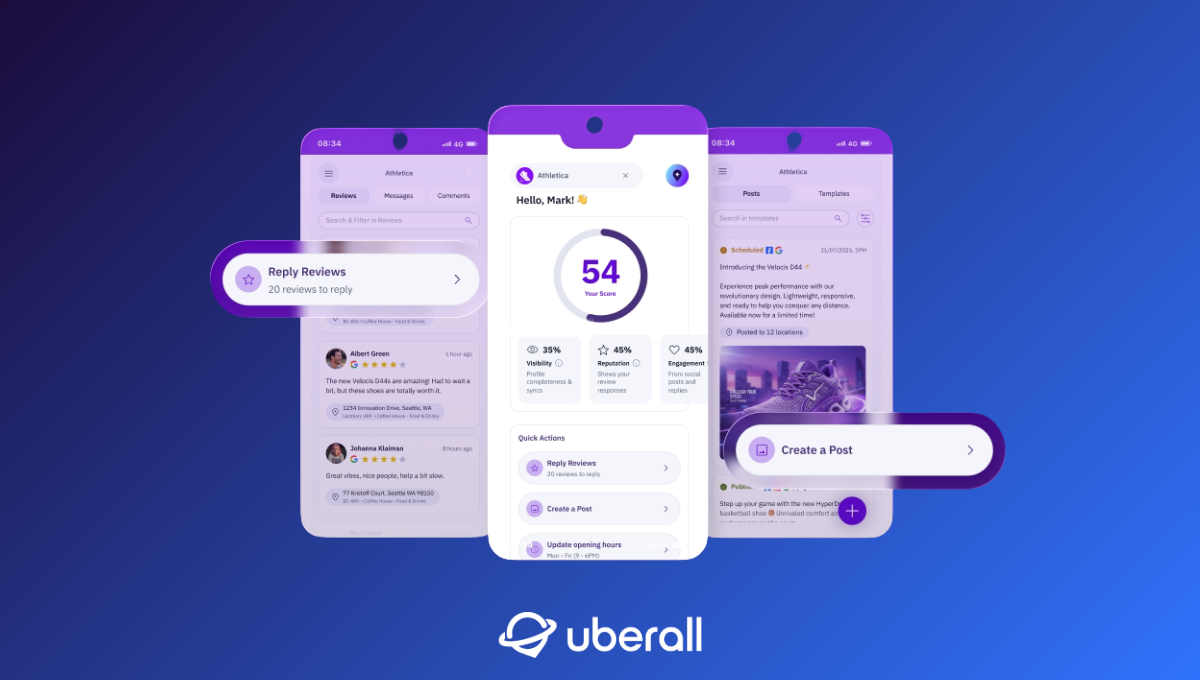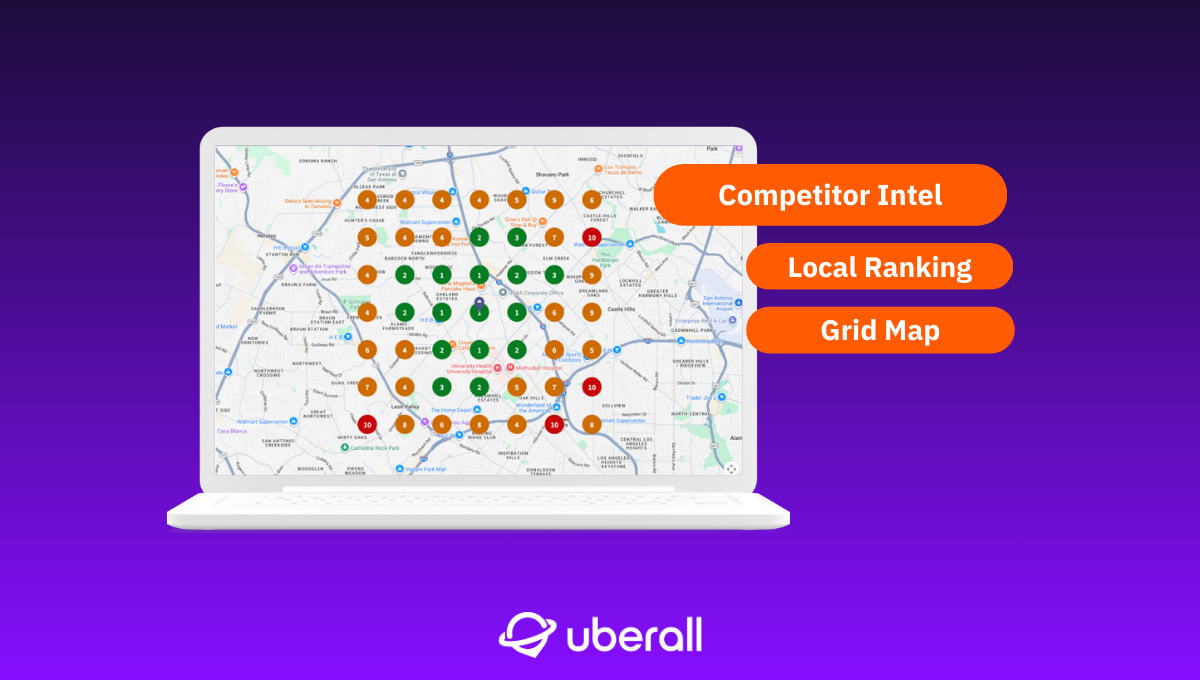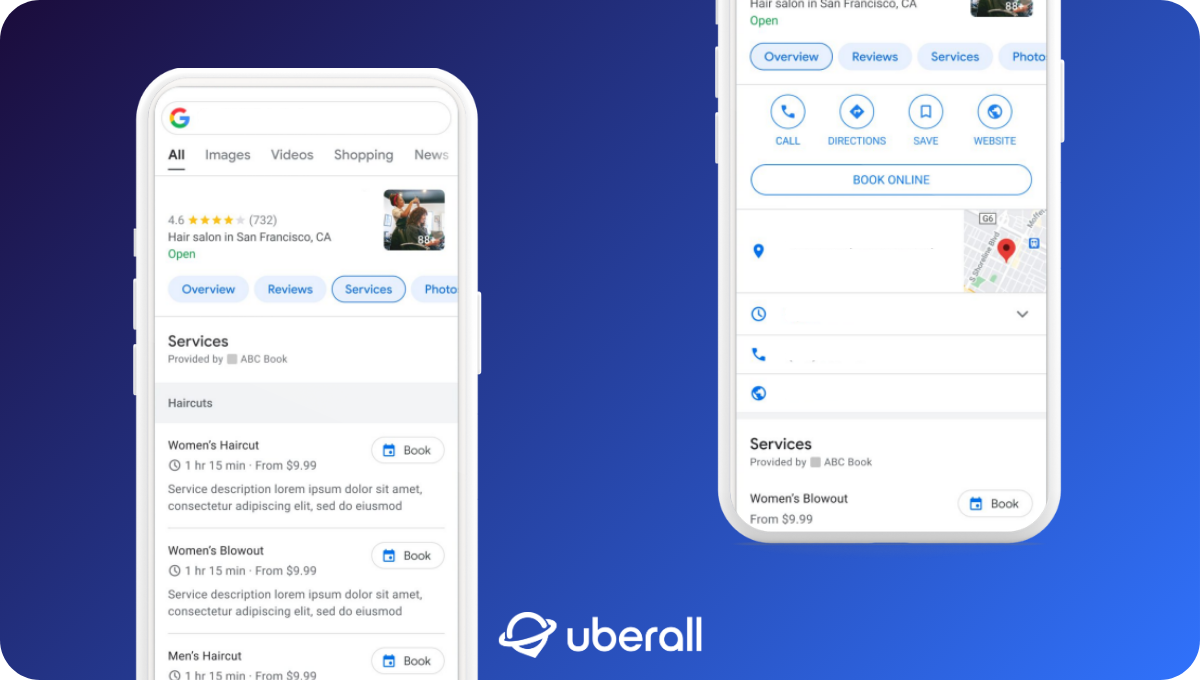
Podcast Pieces: The Real Answer to “Is SEO Dead?” and Juggling Marketing Tasks
Many marketers wonder: “How will AI affect SEO?” Will traffic drop further & revenue stall? Our VP of Product shares insights in our latest podcast recap.
In a world where 58% of consumers already turn to generative AI for product and service discovery, the rules of search are being … well, revised.
In this episode of the Local Marketing Beat, host Christian Hustle sits down with Uberall’s VP of Product, Partho Ghosh, to explore how AI search is visibly reshaping consumer behavior — and what that shift means for traditional SEO.
Is SEO dead? Not quite. Partho tells us why he thinks it’s not dying, but evolving at breakneck speed.
Why Has AI Search Thrown a Spanner in the SERPs?
Partho Ghosh: “It's quick, it's fast, and you don't have to do too much discovery. You don't have to go to websites. You don't have to scroll, right? The scrolling motion is starting to kind of fade away.”
Instead of presenting multiple options, like the traditional search engine results page (SERP), AI often delivers a single recommendation — and because it’s non-deterministic, meaning the answer can vary each time based on a mix of factors, how you prompt, and which tool you use. While this might sound new, many of those “ranking factors” will be familiar to any SEO professional.
Relevance, trust, and authority are at the top of the list. AI places high value on fresh, accurate content, strong customer reviews, and consistent brand sentiment across platforms. These trust signals — long staples of SEO best practice — now carry even greater weight in determining whether a brand earns that coveted single AI-generated spot. In short, the fundamentals haven’t disappeared; they’ve simply become more critical in the era of AI search.
Is SEO Dead?
Partho Ghosh: “To dominate AI search, the steps are almost the same as SEO — but the stakes are higher, and the margin for error is tiny.”
Partho points out that the steps to succeed in AI search aren’t all that different from traditional SEO — but the margin for error is razor-thin. Structured data and consistent content remain nonnegotiable. If even one or two platforms list incorrect information — something as small as an outdated opening hour — AI tools like ChatGPT or Gemini may remove your brand from their answers altogether.
The good news? Many of the fundamentals SEO experts have focused on for the past decade still apply. The difference is that they’re now in “hyper mode” — faster, stricter, and less forgiving. Brands need to be obsessive about accuracy, because small discrepancies can mean the difference between being the answer and not showing up at all.
At the same time, AI search is shifting the channels that matter. Traditional SEO metrics like backlinks and keyword density are taking a back seat to broader trust and authority signals — including what people are saying about your brand on platforms like Reddit, Quora, and Wikipedia. For marketers, this means expanding the playbook. Those less conventional channels are now part of AI’s trust engine, influencing whether your business earns that single, all-important recommendation.
And while AI can still produce “hallucinations,” Partho believes its answers will get increasingly relevant as the technology matures. In the meantime, brands should focus on showing up accurately, consistently, and positively across every place AI might look.
LPO: SEO’s Next Chapter
Partho Ghosh: “It can be overwhelming, and I think one thing to note is: I think that’s okay. I think we should make it known that it’s okay to feel overwhelmed and daunted right now because things change. They’re changing so fast. I mean every day, every week there’s something new. So I think giving yourself a little bit of grace is also important at this time.”
Partho explains that Uberall’s Location Performance Optimization (LPO) framework was born from countless conversations with customers and the market. Brands weren’t just managing listings or doing local SEO — they were juggling a wide range of activities that all contributed to their visibility and performance. LPO brought these practices under one strategy, with four core pillars: visibility, reputation, engagement, and conversion.
From the start, the team anticipated that AI would have a major influence on how these pillars worked together. But the central goal remains the same: revenue. Whether it’s responding to reviews, posting local content, or keeping listings up to date, every activity ultimately needs to drive conversions — more store visits, more calls, and more sales. LPO is designed to keep that outcome front and center.
This approach fits seamlessly into the AI era. With Uberall’s AI agent, UB-I, brands can act on LPO insights more efficiently. Tied to the Location Performance Score — a measure of how well each location is performing across the four pillars — UB-I can identify opportunities, take action in the background, and prompt users to improve their scores. The goal isn’t to make things more complicated, but to simplify execution so multi-location brands can keep pace with today’s faster, AI-driven search environment.
The Vision of UB-I
Partho Ghosh: “I'm excited about where it's going. And that's just going to free up time, right? We talked about juggling balls. Now, you're going to be able to be more strategic and actually, you can let UB-I do its thing while you think about really important things that you probably don't have enough time to do.”
AI agents like Uberall’s UB-I are built to take some of the heaviest tasks off marketers’ plates. Managing local visibility is already a juggling act, and AI search has added yet another ball to the mix. That’s why UB-I exists: to help brands not only optimize for AI search, but also use AI inside the platform to work smarter.
Even now, UB-I is being used in creative ways the product team didn’t anticipate — and it’s performing well. By the end of the year, users will be able to prompt UB-I to take almost any action, from replying to dozens of negative reviews in minutes (with built-in escalation details like a contact email or phone number) to generating full content calendars aligned to active campaigns. In the future, UB-I will integrate with marketing automation and project management tools, building strategies for multiple networks in just minutes.
The long-term vision includes an autopilot mode — allowing UB-I to run key optimization tasks in the background, even when the user is away. For multi-location brands, that could be game-changing. Instead of struggling to keep up with every LPO pillar across hundreds or thousands of locations, teams will be able to push further on visibility, reputation, and conversion — dedicating their time to high-impact work while UB-I handles the rest.
First Moves in the AI Search Era
Partho Ghosh: “The fun thing with AI, whether it's within UB-I or whether it's on Chat GPT, is that you can ask it things and it'll give you answers you might not be thinking about, right? It's a two-way conversation. At least it should be. And so treat it that way. Instead of a one-way kind of search and prompt, treat it as a two-way conversation.”
When asked where brands should start, Partho’s advice is clear: Begin with structured data. Make sure every platform — from Google Business Profiles to your own website — has accurate, consistent, and complete information. Local pages are especially important; if you have them, keep them current, as outdated or missing details can cause AI tools to surface incorrect answers. In some cases, even a brand’s own website has been the source of wrong information in AI results.
Once the data foundation is solid, the next priority is fresh, relevant content. That means regular posting across key platforms like Google and Apple — not just at a corporate level but locally. Partho points out that many brands claim to have a social strategy, yet their last location-level post was months ago — which AI (and customers) no longer sees as relevant. Promotions, seasonal updates, and local happenings should all be reflected in this content.
Finally, Partho recommends testing new channels and staying curious. That might mean exploring platforms you’ve never considered or even asking AI tools directly which channels could boost your visibility. Treat it as a conversation, not just a search box. The answers you get may reveal opportunities you hadn’t thought of — and in the fast-moving AI search landscape, that curiosity can be a real competitive advantage.
Ready to Transform Your Business?
Connect with our partnership team to learn how Uberall can help you achieve similar results. Get a personalized consultation and discover the opportunities waiting for your business.
Resources











